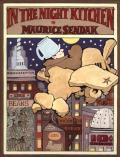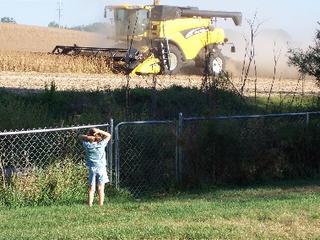"It will damage your child if she reads this non-age-appropriate material."
Sounds reasonable, right? Except for that tricky part: defining what's appropriate. Check out the "Top Ten Most Challenged Books of 2004" on the American Library Association's Banned Book Week website:
The Chocolate War by Robert Cormier, for sexual content, offensive language, religious viewpoint, being unsuited to age group and violence
Fallen Angels by Walter Dean Myers, for racism, offensive language and violence
Arming America: The Origins of a National Gun Culture by Michael A. Bellesiles, for inaccuracy and political viewpoint
Captain Underpants series by Dav Pilkey, for offensive language and modeling bad behavior
The Perks of Being a Wallflower by Stephen Chbosky, for homosexuality, sexual content and offensive language
What My Mother Doesn't Know by Sonya Sones, for sexual content and offensive language
In the Night Kitchen by Maurice Sendak, for nudity and offensive language
King & King by Linda de Haan and Stern Nijland, for homosexuality
I Know Why the Caged Bird Sings by Maya Angelou, for racism, homosexuality, sexual content, offensive language and unsuited to age group
Of Mice and Men by John Steinbeck, for racism, offensive language and violence
Now I haven't read all of these books, and I'm not planning on reading The Chocolate War to my three year old daughter or handing it over to my eight year old son. But we own a complete set of Captain Underpants (not to mention its hilarious spin-off, Super Diaper Baby), and I am convinced that these books, along with a collection of Calvin & Hobbes cartoon books, are responsible for turning my "I'd rather play my GameBoy" kid into one who regularly devours 300+ page books. George and Harold (the real heroes in Captain Underpants) are good kids. Yes, they get into trouble, but who wouldn't with a teacher like Ms. Anthrope? And the offensive language is of the "It's snot funny" variety, which most boys that age certainly already use.
Attempting to ban this book from a school library is just wrong. Don't let your kids read it if you don't like it, but don't you dare deny it to other kids who might learn that 1) Even kids that are not academically gifted can be heroes; 2) Kids that draw cartoons instead of doing their math problems are not bad kids; and 3) Reading can be fun. And really funny.
Judy Blume (frequently challenged for her kid's books, including Are You There, God? It's Me, Margaret) sums it up better than I could on her personal website:
I believe that censorship grows out of fear, and because fear is contagious, some parents are easily swayed. Book banning satisfies their need to feel in control of their children's lives. This fear is often disguised as moral outrage. They want to believe that if their children don't read about it, their children won't know about it. And if they don't know about it, it won't happen.
Today, it's not only language and sexuality (the usual reasons given for banning my books) that will land a book on the censors' hit list. It's Satanism, New Age-ism and a hundred other isms, some of which would make you laugh if the implications weren't so serious. Books that make kids laugh often come under suspicion; so do books that encourage kids to think, or question authority; books that don't hit the reader over the head with moral lessons are considered dangerous.
Censors don't want children exposed to ideas different from their own. If every individual with an agenda had his/her way, the shelves in the school library would be close to empty. I wish the censors could read the letters kids write.
Dear Judy,
I don't know where I stand in the world. I don't know who I am. That's why I read, to find myself.
Elizabeth, age 13
But it's not just the books under fire now that worry me. It is the books that will never be written. The books that will never be read. And all due to the fear of censorship. As always, young readers will be the real losers.

Tags:





